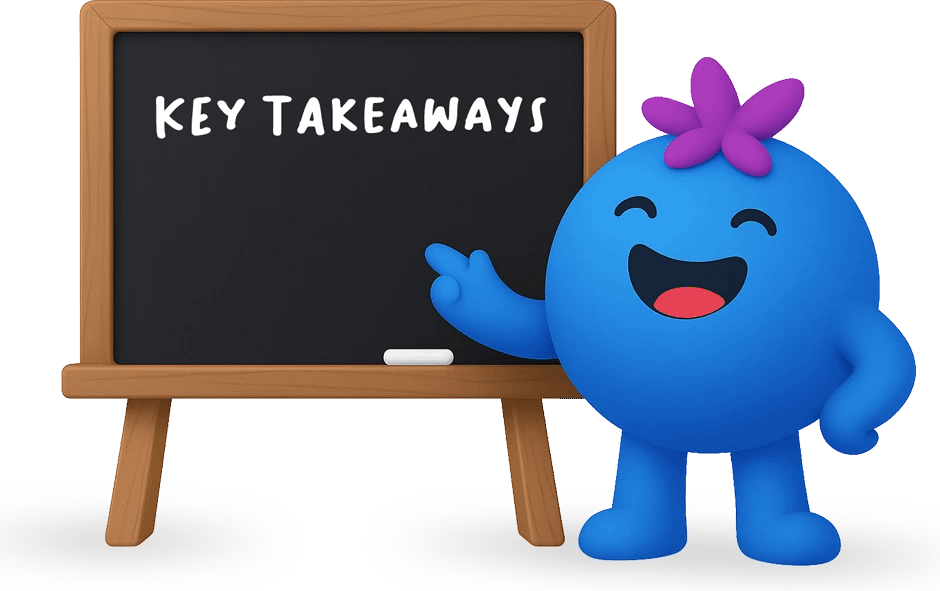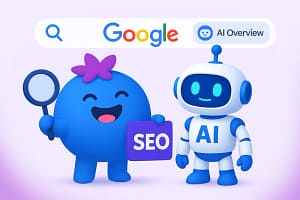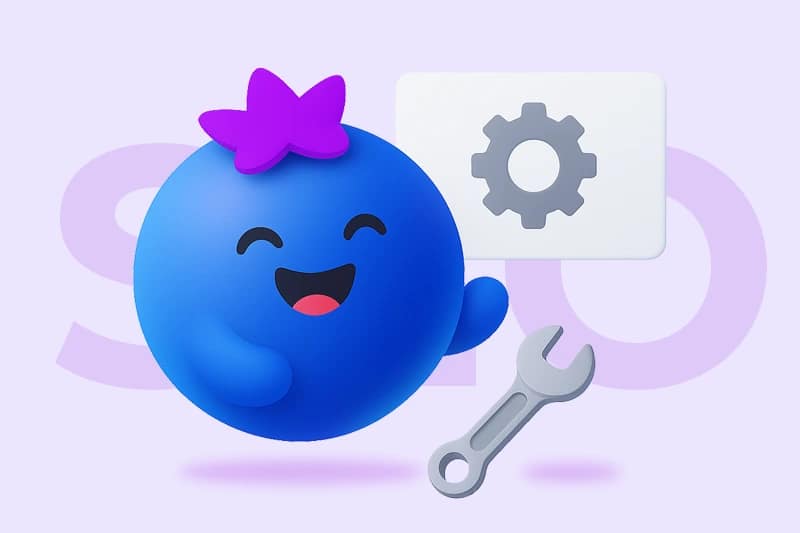In 2025, mastering AI SEO techniques is no longer optional — it’s essential.
As search engines evolve toward generative search optimisation, tools like ChatGPT have become powerful allies for content creators and marketers. This ChatGPT SEO guide explains how artificial intelligence can enhance keyword research, on-page optimisation, and content generation — all while helping your site rank in AI-driven results. Whether you want to understand how to use ChatGPT for SEO, improve visibility in Google’s AI-powered search, or optimise your blog for smarter algorithms, this guide walks you through practical strategies and examples to future-proof your digital presence.
What Is AI SEO?

AI SEO (Artificial Intelligence Search Engine Optimisation) is the process of improving website visibility using machine learning, natural language models, and automation tools like ChatGPT.
Unlike traditional SEO that relies purely on manual keyword research and backlink building, AI SEO analyses intent, patterns, and semantic relationships — helping your content rank higher across both Google and emerging AI-driven search platforms.
In 2025, AI SEO techniques combine classic optimisation with artificial intelligence to create smarter, more adaptive strategies. This means using ChatGPT for SEO tasks such as content planning, meta-data optimisation, and predicting user intent in generative search results.
When done correctly, AI-powered SEO allows small and medium-sized businesses to compete with larger brands by automating repetitive tasks and focusing on creativity, strategy, and brand authority.
How ChatGPT Helps Improve SEO
Using ChatGPT for SEO gives marketers real-time insights, automation and strategic support that traditional tools simply can’t match. Instead of spending hours manually researching keywords or crafting descriptions, AI SEO techniques powered by ChatGPT streamline the process and significantly improve quality. This section of our ChatGPT SEO guide explains how AI enhances search optimisation in practice.
Here’s how ChatGPT strengthens modern SEO strategies:
- Keyword research and clustering – ChatGPT generates long-tail keyword lists, groups related search phrases and uncovers semantic opportunities aligned with Google’s intent-based algorithms.
- Content briefs and outlines – It builds structured blog outlines around target keywords, suggesting titles, subheadings and questions that match real user intent.
- Meta titles and descriptions – ChatGPT creates optimised meta snippets instantly, improving CTR, voice-search visibility and alignment with modern search behaviour.
- Internal linking strategy – AI can detect content gaps, recommend anchor texts and help build a stronger site architecture to boost topical authority.
- AI content optimisation – ChatGPT analyses readability, tone, keyword balance and semantic coverage, ensuring every paragraph supports SEO without sounding artificial.
By integrating these AI SEO techniques into your daily workflow, you save time, build stronger topical authority and produce consistent, data-driven content that adapts to Google’s evolving algorithms. It’s one of the most effective ways to future-proof your strategy — and exactly why this ChatGPT SEO guide is essential for businesses aiming to stay ahead in the AI era.
Learning from Online Content
AI doesn’t recommend brands by accident.
Language models like ChatGPT “learn” from online patterns — the more often a company, product, or expert appears across multiple trusted sources in a positive context, the higher the chance that AI will start recommending them in AI-driven search results.
That’s why brand visibility plays such a crucial role in AI SEO today:
- Publishing expert or sponsored articles across relevant websites
- Running a company blog with high-quality, educational content
- Listing your business in professional and local directories
- Providing expert quotes for media, reports, and podcasts
As noted by Search Engine Journal, AI is already shaping how users make purchasing decisions. Businesses that remain invisible online may soon become invisible to AI assistants like ChatGPT or Copilot as well.
In other words — AI builds your brand reputation based on what it “sees” online.
If multiple trusted sources describe your company as a leader, AI recognises that pattern and will increasingly recommend your brand as a reliable authority.
The Role of Domain Authority
Just like in traditional Google SEO, domain strength still matters in AI SEO.
In classic search, it’s measured by metrics such as Domain Rating (DR) in Ahrefs or Domain Authority (DA) in Moz.
The higher these values — and the more quality backlinks your site earns — the greater its credibility and visibility online.
The difference in AI search is that large language models don’t need to cite an exact backlink to “trust” a brand.
If your company consistently appears across reputable sources, the algorithm starts to remember and associate it with authority in that field — even without a direct URL reference.
For example: if someone asks “What are the top social media agencies in Poland?”, ChatGPT might mention SocialBerry not because of a specific backlink, but because the brand repeatedly appears in trusted online contexts related to that topic.
This represents a new level of brand awareness in the age of AI — where visibility and trust come not only from links, but from consistent presence and expertise across the web.
Effective AI SEO Strategies
Create Expert-Level Content
In the world of AI SEO, short and generic texts have little value.
Language models like ChatGPT prioritise long-form, well-structured, and educational content that explains topics in depth and provides actionable insights.
Here’s what works best:
- Publish blog articles over 1,500–2,000 words.
- Include examples, statistics, and case studies.
- Use clear formatting with H2/H3 headings, lists, and tables.
- Write in a simple, structured, and human-friendly way — AI understands clarity better than complexity.
This increases your brand’s chances of being cited by ChatGPT, Copilot, or other AI assistants as a trusted knowledge source.
Publish on High-Authority Domains
AI models evaluate not only your content, but also the domain authority (DR/DA) of where it appears.
A mention or link from a DR40+ site (according to Ahrefs) acts as a strong credibility signal for your brand.
The most valuable backlinks and mentions come from:
- Industry or technology portals
- High-traffic local news sites
- Expert blogs in your niche
- Sponsored articles in reputable media outlets
The more often your brand appears across trusted and authoritative sources, the more likely it is that AI will reference your business in responses.
Build and Maintain Online Reputation
AI systems don’t rely only on your official website.
They also scan reviews, mentions, and user feedback across the internet.
If your brand collects consistent positive mentions, AI interprets it as a sign of trust and reliability.
To strengthen your brand reputation:
- Collect and promote reviews on Google Maps, Facebook, and LinkedIn
- Monitor comments in industry directories and review sites
- Respond actively to feedback to show engagement
- Create verified profiles in business listings and opinion platforms
A strong online reputation helps your company appear as a credible, recommended choice — improving the likelihood of being recognised by AI search systems.
Experiment with Prompts
AI SEO is not just about optimisation — it’s also about continuous testing.
You can analyse how your brand is perceived by checking its presence in ChatGPT responses.
Try prompts such as:
- “What are the best social media agencies in UK?”
- “Recommend a digital marketing agency in Leicester.”
- “What are the top tools and agencies for Facebook management?”
If your brand doesn’t appear in these answers, it’s a signal to:
- Publish more expert-level content
- Strengthen your backlink profile
- Increase brand mentions across online media
Experimenting with prompts helps you understand how AI perceives your brand and identify gaps in your current SEO strategy.
Differences Between Google SEO and AI SEO
| Google SEO | AI SEO (ChatGPT) |
|---|---|
Results listed in SERPs (10 links) | Single AI-generated answer, often without direct links |
Focus on CTR, metadata, and keywords | Focus on brand authority, expertise, and trust |
Results take months to appear | Results may appear faster — but are less predictable |
“Focus on making unique, non-commodity content that visitors from Search and your own readers will find helpful and satisfying. Then you’re on the right path for success with our AI search experiences.”
— From Google blog post: Succeeding in AI Search
Is Your Business Ready for AI SEO?
Try a simple test: ask ChatGPT or Copilot something like
“Best companies [your industry] in the UK” or “Which company offers [your service] in [your city]?” If your brand doesn’t appear in the results, that’s a clear sign AI doesn’t have enough data to recommend you. It means your online presence is still too weak, your content lacks authority, or your brand isn’t recognisable enough.
Invest in Content and Links
AI learns from the entire internet — from blogs, sponsored articles, business directories, and even reviews.
Every mention of your brand online is a building block for your AI visibility.
Here’s what to focus on:
- Publish expert-level articles on your company blog.
- Get featured on industry websites and local news portals.
- Build backlinks from high-authority domains (DR 40+).
It’s similar to how Google SEO worked years ago — the brands that consistently invested in content back then are the ones dominating search results today.
Be a Pioneer
AI SEO and ChatGPT optimisation are still emerging fields.
Search volumes for phrases like “AI SEO” or “ChatGPT ranking” are only starting to grow — now is the perfect moment to act.
Businesses that begin building their AI authority and brand reputation in 2025 will gain a long-term competitive edge.
By the time others catch up, your company can already be the natural choice mentioned by AI assistants.
Real-Life Example
Let’s say a user asks ChatGPT:
“Which companies offer web design services in Leicester?”
If there are strong online signals — valuable articles, sponsored publications, and authentic customer reviews mentioning a specific brand — there’s a good chance AI will recommend it directly in the answer.
For example, a web design company in Leicester that consistently invests in blog content, backlinks, and local visibility can appear not only on Google, but also be suggested by ChatGPT as one of the leading options in the area.
This proves that AI SEO isn’t just theory — it’s a practical strategy that can already help businesses gain new clients through AI-driven search results.
If you’d like to see how your brand could benefit, check out our service:
Web Design Leicester
“AI won’t replace SEO — but it will change its rules. Brands that learn how to stay visible in AI-generated answers will gain a long-term advantage.”

Conclusion – ChatGPT SEO Guide
AI SEO and ChatGPT optimisation are reshaping the future of digital marketing. It’s no longer enough to rank on the first page of Google — brands now need to appear in AI-generated answers, where users expect fast, trusted recommendations instead of traditional search results. As this ChatGPT SEO guide shows, visibility within AI systems is becoming a new and rapidly growing traffic channel.
Millions of users now turn to ChatGPT to discover services, compare businesses, and make purchasing decisions. That means authority, high-quality content, and strong brand mentions matter more than ever. Companies that invest early in AI SEO will dominate these emerging recommendation engines long before competitors catch up.
If you want to stay relevant, start building your AI-ready presence today: publish valuable content, earn authoritative backlinks, strengthen your online reputation, and ensure your brand is consistently mentioned across the web. In the age of artificial intelligence, trust and authority decide who gets seen — both in Google and in ChatGPT’s answers.
don’t stay green about AI SEO and ChatGPT visibility







